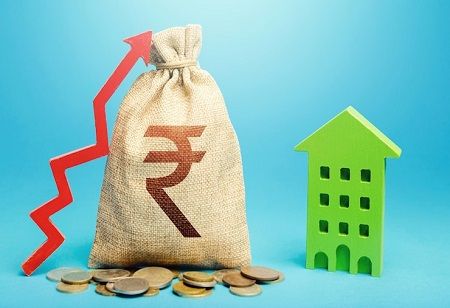
PM Modi Announces 'GST Savings Festival' to Boost Budgets
- GST rate cuts across 375 items aim to reduce inflation pressure, boosting consumption among middle-class households.
- Businesses instructed to pass savings; monitoring to ensure reduced prices reflect tax-changes for consumers.
- Major sectors like FMCG, automobiles, insurance, and cement witness noticeable cost drops, benefiting everyday life.
.jpg) The second phase of the Goods and Services Tax (GST 2.0) has come into effect; bringing sweeping rate cuts on over 375 every day-use items. The move follows the 56th GST Council meeting and has set the stage for lower prices across food, household goods, consumer durables, and even cars. Companies, urged by the government to pass on the full benefits to consumers, have already begun rolling out reductions, supported by advertisements and promotional campaigns.
The second phase of the Goods and Services Tax (GST 2.0) has come into effect; bringing sweeping rate cuts on over 375 every day-use items. The move follows the 56th GST Council meeting and has set the stage for lower prices across food, household goods, consumer durables, and even cars. Companies, urged by the government to pass on the full benefits to consumers, have already begun rolling out reductions, supported by advertisements and promotional campaigns.
The biggest cuts have been seen in the Fast-Moving Consumer Goods (FMCG) segment, particularly food items. Amul and Mother Dairy have reduced paneer prices by 3% and lowered rates for UHT milk and butter products. Amul’s khakra and cheese parathas are now up to 20% cheaper following GST exemptions. Similarly, Pringles chips are down 12%, while Kellogg’s corn flakes and Sunfeast biscuits are 11–12% cheaper. Ice creams, with tax reduced to 5% from 18%, now cost as little as ₹9 for a vanilla cup.
Personal care products such as shampoo, soap, hair oil, and toothpaste have shifted to the 5% tax slab from 18%. Brands such as L’Oreal, Dove, Close-Up, and Himalaya have announced cuts of 11–13%, making everyday essentials more affordable.
.jpg) Economists see this as a key driver of consumption growth. A report from Bank of Baroda noted that lower inflation will create space for households to divert spending toward savings and investments, further strengthening demand across sectors.
Economists see this as a key driver of consumption growth. A report from Bank of Baroda noted that lower inflation will create space for households to divert spending toward savings and investments, further strengthening demand across sectors.
Also Read: SDHI, Gujarat Maritime Board Ink Rs 4,250 Cr MoU
Beyond food and household products, cement prices are set to drop by nearly 10%, with producers like JK Cement and UltraTech pledging to pass on benefits. Health and life insurance premiums are also expected to decline by up to 15% after the exemption of GST. In consumer durables, Whirlpool has slashed prices of air conditioners and dishwashers by ₹3,000–₹5,000.
Maruti Suzuki, the country’s largest automaker, has cut car prices by ₹46,400 to ₹1.29 lakh, particularly for small cars and SUVs now taxed at 18% instead of 28% plus cess. However, dealers are grappling with losses, as vehicles procured at earlier higher rates proved difficult to sell before the new regime, with potential losses estimated at ₹2,500 crore.
Overall, GST 2.0 marks a significant realignment of India’s tax structure, with tangible benefits for consumers and potential for a wider boost to economic activity. By easing the tax burden across essential and durable goods, the reform is expected to strengthen household purchasing power, stimulate demand across industries, and contribute to long-term economic growth.

.jpg)